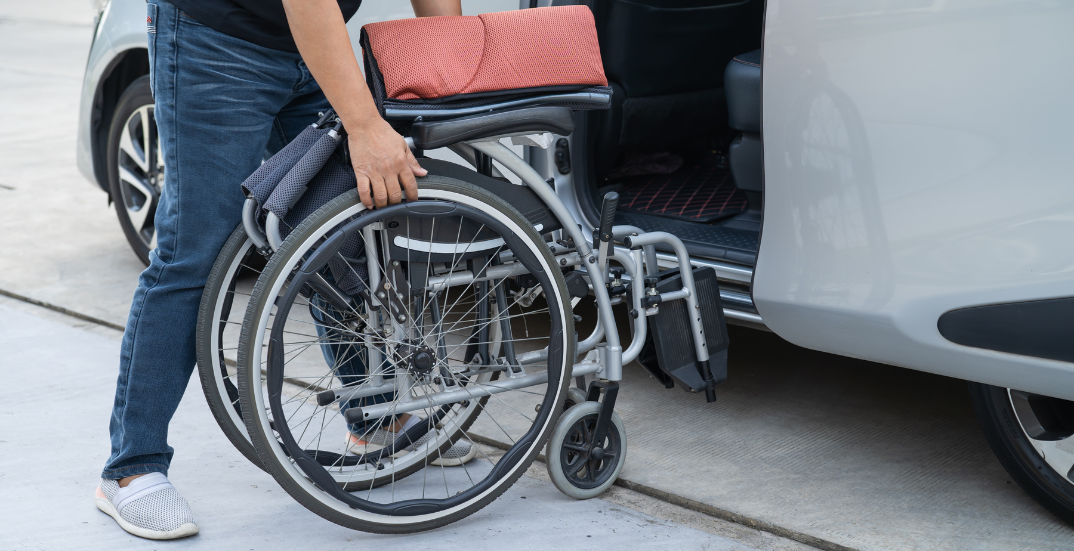Multiple sclerosis (MS) is a complex neurological disease that affects the brain and spinal cord, impacting nearly 1 million people in the United States. This autoimmune condition occurs when the body’s immune system mistakenly attacks the protective covering of nerve fibers called myelin, disrupting communication between the brain and the rest of the body.
Key Takeaways:
- MS Overview: MS is an autoimmune disorder affecting the central nervous system.
- Potential Link to Trauma: Some studies suggest trauma, such as a car accident, could potentially trigger or exacerbate MS, but the evidence is not conclusive.
- Legal Considerations: Proving a direct link between a car accident and the onset or exacerbation of MS can be challenging, but legal recourse may be available for those affected.
The Link Between MS and Car Accidents
There is no clear evidence that directly correlates MS with car accidents. However, some studies suggest a potential link between trauma and MS:
- Cranio-Cervical Trauma and MS:
- A study on cranio-cervical trauma and abnormal cerebrospinal fluid (CSF) hydrodynamics found that all MS patients in the study had obstructions in CSF flow and significant neck problems. This research indicates that trauma to the neck area, which is common in car accidents, could potentially influence the development or progression of MS.
- Trauma and the Blood-Brain Barrier:
- Some neurologists believe that trauma could affect the body’s systems and raise the risk of inflammatory cells entering the central nervous system. This theory suggests that the physical impact of a car accident might compromise the blood-brain barrier, potentially allowing harmful substances to enter the central nervous system.
- Whiplash and Demyelination:
- Research indicates an association between trauma and demyelination, with whiplash being the most common trauma linked to MS. Whiplash, a frequent injury in rear-end collisions, could potentially contribute to the demyelination process characteristic of MS.
However, it is important to note that other studies have found no link between pre-existing or new multiple sclerosis diagnoses and traumatic injuries. This conflicting evidence highlights the complexity of MS and the need for further research in this area.
Can a Car Accident Trigger an MS Flare-Up?
While a car accident may not directly cause MS, it is possible that the stress and trauma associated with the accident could trigger an MS flare-up in individuals who already have the disease. A flare-up, also known as an exacerbation or relapse, is a period when MS symptoms worsen or new symptoms appear.
Additionally, Post-Traumatic Stress Disorder (PTSD), which affects over 9 percent of car accident victims, may increase the risk of developing MS. The chronic stress associated with PTSD can potentially impact the immune system, which plays a crucial role in MS.

Common Symptoms of Multiple Sclerosis
Understanding the symptoms of MS is crucial for early detection and proper medical care. The most common symptoms of MS include:
- Fatigue and weakness
- Difficulty walking
- Numbness or tingling
- Vision problems
- Cognitive changes
- Balance issues
- Bladder dysfunction
These symptoms can vary greatly from person to person and may come and go over time. If you’re experiencing any of these symptoms following a car accident, it’s essential to consult with a healthcare professional for a proper evaluation.
Recovering Compensation After a Car Accident
Recovering compensation for multiple sclerosis after a vehicle accident can be challenging. MS is often misdiagnosed and requires extensive testing to confirm, making it difficult to prove a direct link to the accident. This complexity underscores the importance of seeking both medical and legal expertise when dealing with potential MS cases related to car accidents.
If the vehicle accident was caused by the actions of another driver, individuals may be able to recover various types of compensation, including:
- Medical Expenses: Coverage for all medical treatments related to MS, including ongoing care.
- Lost Income: Compensation for lost wages if the individual is unable to work due to MS symptoms.
- Pain and Suffering: Compensation for the physical and emotional distress caused by the accident and its impact on the individual’s life.
It’s important to note that whiplash symptoms can be very similar to early MS symptoms, such as dizziness, stiffness, and pain. However, experiencing whiplash does not necessarily mean you will develop MS. Whiplash is a common car accident injury that typically resolves with proper treatment, while MS is a chronic condition requiring long-term management.
Legal Considerations for MS Claims After Car Accidents
When pursuing a legal claim for MS potentially related to a car accident, several factors come into play:
- Causation: Establishing a clear link between the accident and the onset or exacerbation of MS symptoms is crucial.
- Medical Evidence: Comprehensive medical documentation, including diagnostic tests and expert opinions, is essential to support the claim.
- Statute of Limitations: Be aware of the time limits for filing a claim, which vary by state.
- Insurance Negotiations: Dealing with insurance companies can be complex, especially for conditions like MS that may have long-term implications.
Working with a car accident lawyer who has experience in complex medical cases can significantly improve your chances of a successful claim.

Conclusion
While there is no clear evidence that car accidents directly cause multiple sclerosis, they may trigger flare-ups in individuals who already have the disease. Recent research continues to explore the potential links between trauma and MS, but more studies are needed for definitive conclusions. The relationship between car accidents and MS remains a topic of ongoing scientific investigation and legal consideration.
If you or a loved one has experienced an MS flare-up following a car accident, it is essential to work with experienced medical and legal professionals to help you recover the compensation you deserve. Early diagnosis and proper treatment are key to managing MS, regardless of its cause. Always seek prompt medical attention after a car accident, especially if you experience any neurological symptoms.
FAQs
Q: Can a car accident trigger an MS flare-up?
A: Yes, the physical and emotional stress of a car accident can potentially trigger an MS flare-up in individuals already diagnosed with the condition.
Q: How long do I have to file a claim for MS-related to a car accident?
A: The statute of limitations varies by state. It’s important to consult with an attorney to understand the specific timeframe for your case.
Q: Can I claim compensation if I develop MS after a car accident?
A: Proving a direct link between a car accident and MS can be complex. However, if the accident caused the condition or aggravated a pre-existing one, you might be eligible for compensation. Consulting with a personal injury attorney can help determine your options.





